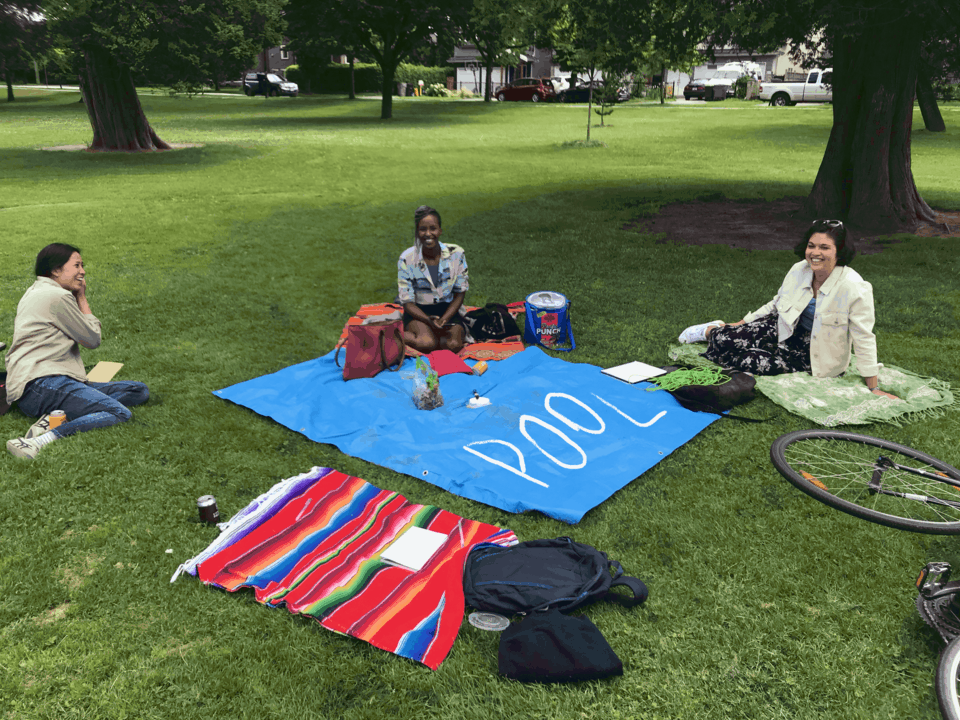‘POOL’ Honours the Personal in the Political
A new project from a group of recent ECU grads aims to find new ways of approaching the work of community support and activism.
The goal, according to project leads Nura Ali, Annie Canto and Jean Chisholm, is to step back from the structures of institutional progress and professionalism, and provide an alternate model for sustainable community-building and meaningful interpersonal solidarity.
“I think we were used to speaking about work in a certain, really formalized way,” Jean, a communication designer, design researcher and educator, says.
“I feel like what’s been happening over the summer is a ‘casual-ification’ of what this work can actually look like, or how we can speak about this work, or how we can invite people in.”
Nura, Jean and Annie, working under the project title POOL, place “antiracist pedagogy, decolonial methodology, and peer-to-peer solidarity” at the heart of their work, which involves finding “new ways to gather that embody relational and mutually supportive ways of being, and challenge the hegemonic structures that disconnect us from the communities and ecologies we live within,” per their project brief. As part of the Shumka Centre for Creative Entrepreneurship’s 2020 Satellite program (Satellite x DESIS), the trio has been working under the mentorship of writer, editor and director/curator of Artspeak, Bopha Chhay.
While the trio had met with many POOL participants previously, they’d often done so in institutional or professional settings, which tend toward hierarchical, formalized exchanges, such as panels, roundtables and artist talks, says Annie, who is an artist and educator.
“A lot of our emphasis on intuitive relationship-building has to do with the fact that we know how much trust needs to be there in order to do the difficult, necessary work.” – Annie Canto

Find the whole article on Emily Carr University News
